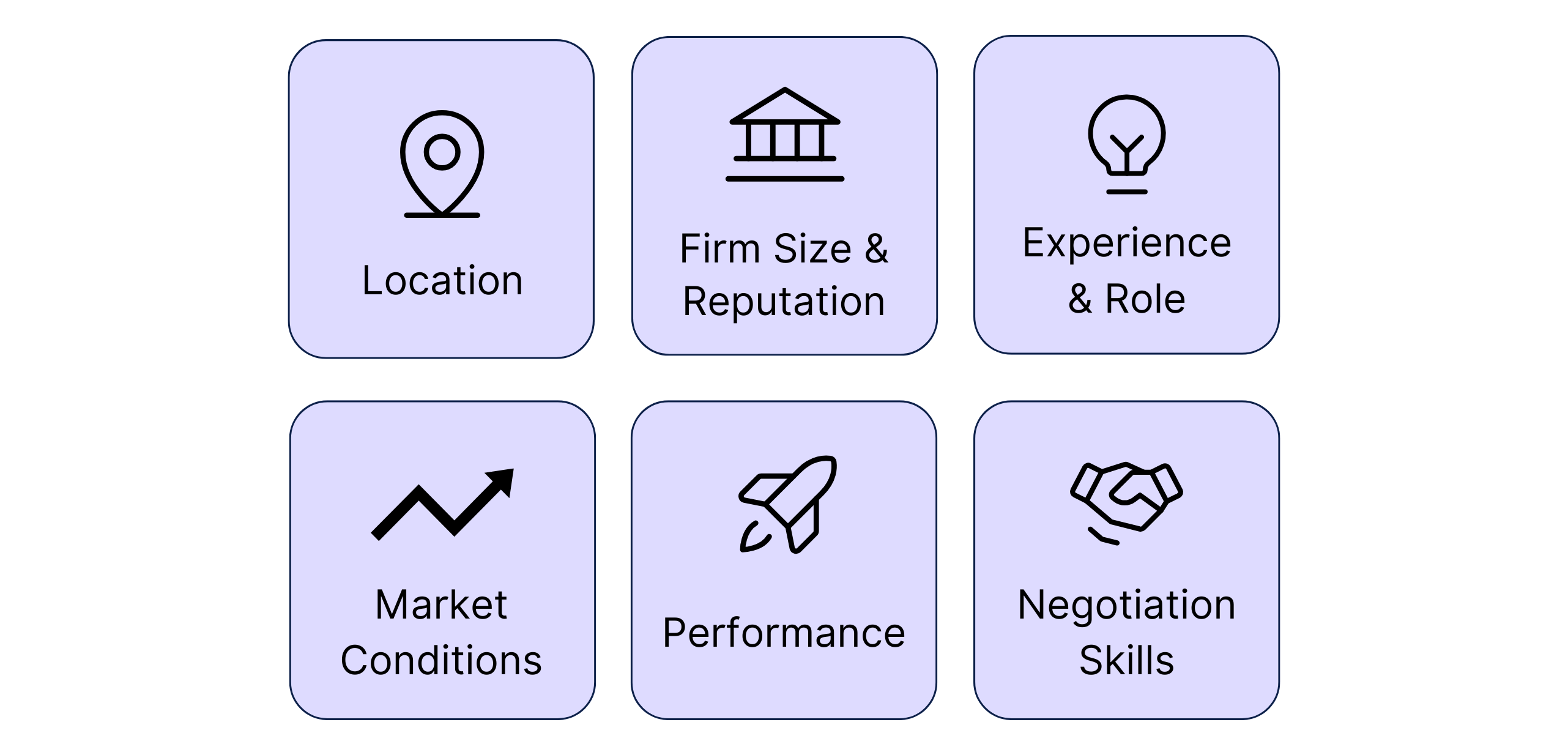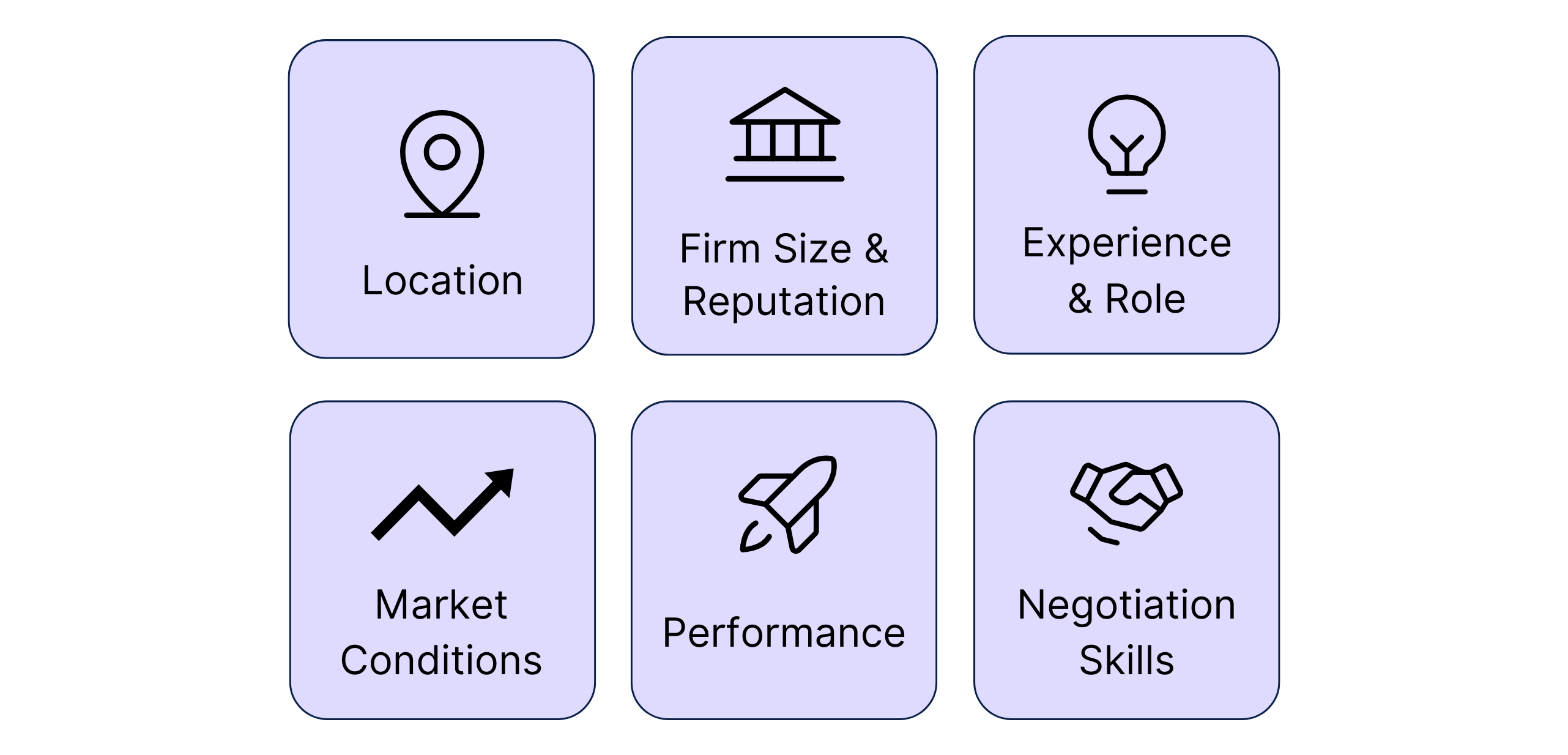Location
IB salaries vary significantly depending on the location of the investment bank. Major financial hubs such as New York, London, Hong Kong, and Singapore typically offer higher compensation. But this is often due to higher cost of living and the concentration of top-tier financial institutions resulting in competition for top talent. A first-year analyst in New York may earn a base salary of $119,000, while one in a smaller market gets salaries that are 10-20% lower.
Firm Size and Reputation
Another determinant for IB salary levels is the size and prestige of the firm. Bulge bracket firms (Goldman Sachs, JP Morgan, Barclays, etc.) generally offer the highest salaries and bonuses. This is often the case because they're able to get great deal flow, strong networks, and access to high-profile clients. Giving the best in industry rates is also part of their plan to attract and retain top talent.
Elite boutique banks can also provide competitive pay, sometimes close or higher than some big names. Then smaller or mid-tier firms typically offer lower compensation as they might not get high-profile deals and significant transactions consistently.
Experience and Role
The IB career path is very hierarchical, starting with summer interns on the lower end and managing directors on the higher side. Experience increases the likelihood of climbing the ladder, and hence more pay.
Entry-level analysts can expect base salaries ranging from $70,000 to $100,000, with total compensation (including bonuses) potentially reaching $200,000 in the first year, depending on performance. As analysts advance to associate and vice president roles, the salaries can double or triple, reflecting the increased responsibilities and contributions.
Performance
We've talked about bonuses earlier, which can constitute a substantial portion of total compensation. Besides the performance of the overall business or industry condition, bonuses are also tied to individual performance. High-performing bankers can receive up to 100% of their base salary, especially in strong financial years.
In short, the investment banking industry has a meritocratic culture that rewards high achievers. There might even be other incentives like commission, tips, performance shares, restricted stock units, and profit sharing depending on the company. All these additional payouts are linked to targets like deals closed, client satisfaction, and revenue generation. As such, you might find top bankers who took home hefty amounts even in the worst years.
Market Conditions
The overall health of the financial markets and economic conditions can affect salaries. During times of high merger and acquisition activity, banks often offer larger bonuses and higher salaries to attract and retain the best talent.
Conversely, in economic downturns, compensation packages may be more conservative. Top performers might still be well-rewarded though even in such times to retain them.
Negotiation Skills
Instead of posting the exact pay on job postings, most hiring managers ask successful candidates about their pay expectations during interviews. This is where your knowledge of the industry benchmarks and negotiation skills come in handy.
You can bag a competitive package by being able to effectively communicate your value and articulate your accomplishments. Besides the strong negotiation skills, you'll need to prepare yourself with data including:
- The firm’s compensation structure
- Firm's performance metrics
- Industry salary benchmarks
That's the only way you can present a compelling case for a higher salary or bonus and maximize your earning potential.
What Are the Top Paying Investment Banking Firms in the US?
Top Paying IB Banks: Bulge Bracket Bank





